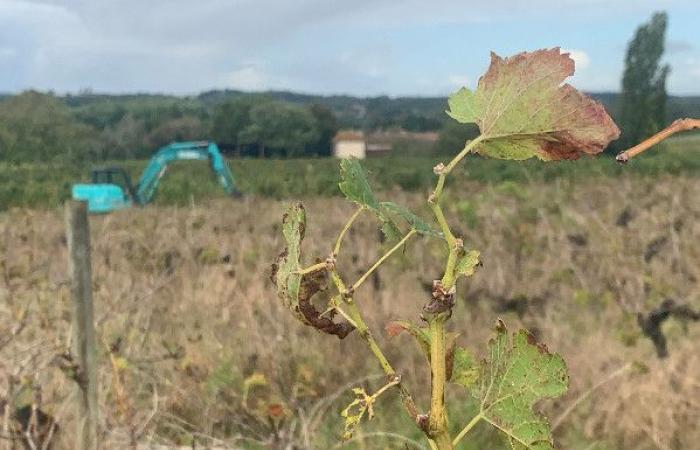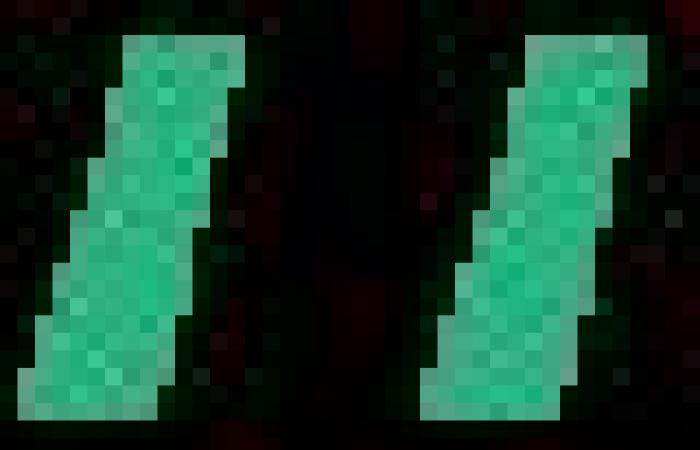The final grubbing up is almost full in the French vineyard: €110 million of the envelope will be mobilized in view of the requests decided today, without there being a stabilizing coefficient to apply. The sector is now asking for the temporary uprooting and use of the remaining €40 million from the envelope promised by the executive.
C
lose this Wednesday, November 13 at noon, the FranceAgriMer teleprocedure for the definitive uprooting of French vines lists 5,417 applications representing 27,451 hectares (including 8,600 ha for 1,311 files for total uprooting of operating areas to stop the wine activity). Coming mainly from Languedoc-Roussillon and Bordeaux*, the requests expressed almost reach the ceiling of 30,000 hectares which can benefit from a grubbing-up premium of €4,000/ha thanks to the envelope of 120 million euros in funds. national funds released for Ukraine aid. With €109.8 million requested, there will therefore be no reduction or prioritization of files: all eligible applications can be processed using the current envelope. The areas eligible for grubbing up and the amount of the bonuses will be communicated to candidates before December 31, 2024, grubbing ups must then be declared no later than June 2, 2025 to then be paid.
“It’s a relief to meet the demand” notes Jérôme Despey, president of the specialized wine council of FranceAgriMer, who points to the strong acceleration in requests in the final stretch (requests submitted have tripled in the last week). “There will be no stabilizing coefficient, this is a relief for wine growers at a time when it is a difficult time to choose companies” comments Jérôme Despey, who looks forward to the next move: “I ask the Minister of Agriculture, Annie Genevard, to preserve for the sector the funds of €40 million which will not be used out of the €150 million promised by the previous minister, Marc Fesneau, at the start of the year. These funds could help those who are most in difficulty and the cooperative cellars which need to be restructured and supported. The commitment must be kept. »
Temporary removal
Another battle to wage now, that of obtaining temporary uprooting. The latter being able to provide breathing space in the readjustment of the vineyard (but having been postponed until a second time depending on the outcome of the European negotiations), “This is a strong expectation in the vineyard, France must mobilize in the High Level Group to obtain it” pleads Jérôme Despey. Vineyard representatives estimate that there are 100,000 hectares of vines to be uprooted in France, permanently and temporarily. The impossibility of having requests for permanent grubbing up and temporary grubbing up at the same time could explain the relative weakness of the demand for definitive grubbing up compared to an estimate given at a time of between 50 and 60,000 ha by the sector. The demand reduced to 27,453 ha could also be explained by the definitive grubbing-up premium set at €4,000/ha (criticized for its weakness), the pressure from cooperative cellars for non-contribution (according to the policy of each company). ..
We can also imagine “psychological sources of attachment to the profession. People are winegrowers at heart, we can’t take it away from them” advances Joël Boueilh, the president of the Vignerons Coopérators de France, who also mentions “the fear of heights: we tear away, but what do we do afterwards? It's a shock. » Knowing that the short deadlines for applications, from October 15 to November 13, could have affected: “when there are rental vines, the agreement of the owner is required for the operator to uproot them. It may take time to make a decision. Difficult to achieve joint ownership where people have never worried about the future of the vines and are far from all that” underlines Joël Boueilh. For those who were unable to register for this system, the appointment was missed even though, to date, there is no European regulatory lever to permanently uproot the vines.
*: The five departments with the highest demand are Aude (4,955 ha), Gironde (4,219 ha), Gard (4,015 ha), Hérault (3,211 ha) and Pyrénées-Orientales (2,613 Ha).







